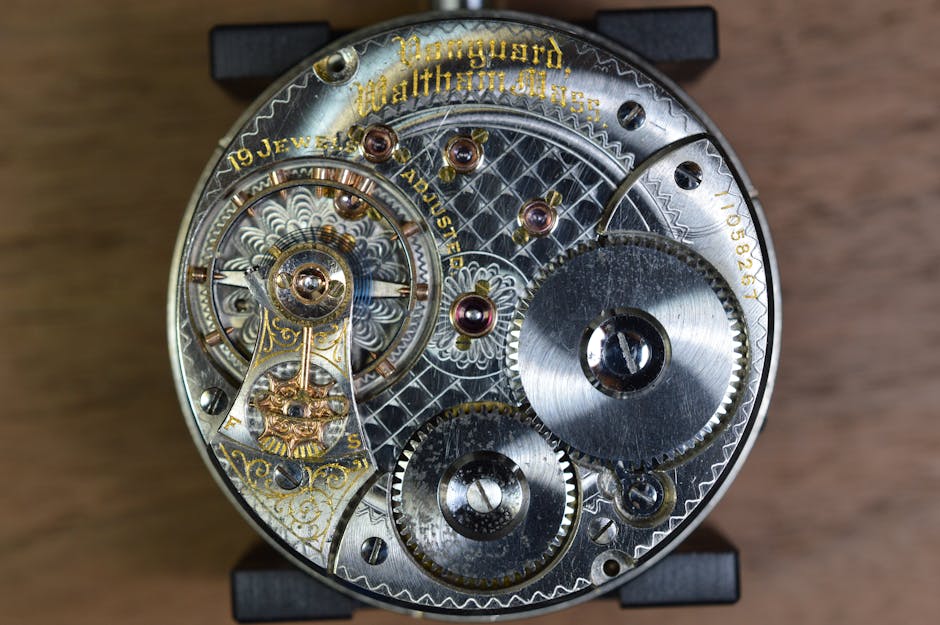
Why Do Watches Use Quartz?
Ever stopped to wonder what makes your watch keep ticking? The answer lies in the very heart of your timepiece: quartz. This mesmerizing gemstone does more than adorn glittering jewellery, it is also a crucial component to numerous timekeeping devices. Renowned for its remarkable precision and affordability, quartz is an inseparable part of the horology world. However, to fully appreciate the importance and application of quartz in watchmaking, it is essential to first understand what it is and how it operates.
Get ready to delve into the intriguing world of quartz timekeeping. Whether you are a watch connoisseur or a curious reader, discover why your watches use quartz, arguably the most important advancement in modern watchmaking. This will require a journey into a mix of geology, technology and history to truly appreciate the marvels involved. So, keep reading and let's embark on this entrancing journey together.
Stay tuned as we unravel the secrets behind quartz’s pivotal role in watchmaking.
What Exactly is Quartz? An Explanation

To truly understand why watches utilize quartz, it's crucial to first delve into what exactly quartz is. Quartz, in simple terms, is a type of mineral that is abundantly found throughout the earth's crust. It is composed of silicon and oxygen atoms and forms a clear, crystalline structure. One unique property quartz holds is piezoelectricity.
Piezoelectric effect is the ability of certain materials to generate an electric charge in response to applied mechanical stress. In the context of a watch, quartz crystals generate electricity when subjected to precise mechanical stress. It's this characteristic that makes quartz an ideal component in modern timekeeping. The regulation of this electrical pulse provides the accurate timekeeping mechanism for quartz watches.
So, quartz isn’t just a fancy element in high-end watches, it plays a key role in the accuracy and precision that defines them.
How are Quartz and Time related?
Quartz is integral in maintaining precision in timekeeping, and here's why.
A quartz crystal has a unique property called piezoelectricity. When voltage is applied to it, this crystal vibrates at an extremely consistent frequency. In a quartz timepiece, this frequency is 32,768 times per second.
These vibrations are translated into electrical pulses, and a circuit counts these pulses to keep time reliably. Because these regular interactions are stable, quartz watches can maintain accurate time down to a few seconds per month. This intricate relationship between Quartz and timekeeping is fundamental in the design of your favourite LUCA Watch.
Efficiency, affordability, and precision – Quartz's inherent properties shine through in the construction of timepieces, marking a crucial point in horology's timeline. No wonder the Quartz revolution of the 70s transformed the watch industry forever.
The Mechanism of a Quartz Watch: Breaking it Down

The beauty of a quartz watch lies in its simple yet complex mechanism. It begins with a tiny piece of quartz, cut and formed into an oscillating, tuning-fork shape.
When an electric charge, sourced from a tiny battery, is passed through it, the quartz oscillates at precisely 32,768 times per second.
This precise frequency is then harnessed, via a circuit, to regulate the movement of the watch’s hands.
What sets quartz watches apart from their mechanical counterparts is this remarkable precision. Unlike mechanical watches, quartz movement does not rely on delicately balanced wheel mechanisms, which can lose or gain several seconds per day.
In essence, a quartz watch combines the beauty of craftsmanship with the precision of modern technology to ensure time-telling accuracy that’s second to none.
Quartz vs. Mechanical Watches: Point by Point Comparison
It's a common question: Quartz or mechanical, which watch movement reigns supreme?
Quartz watches are lauded for their accuracy. Driven by a battery, they leverage the vibrations of a quartz crystal to maintain precision. They're lower-maintenance compared to their mechanical counterparts and generally less expensive.
Mechanical watches, on the other hand, are traditional masterpieces. They're powered by a complex system of gears and springs, assembled meticulously by hand. This craftsmanship often results in higher costs, but fans admire the artistry and history it embodies.
However, mechanical watches may lose a few seconds per day, which quartz watches don't.
The choice between quartz and mechanical depends on personal preferences - a desire for technical accuracy or an appreciation of intricate artisanship. Both bring their unique charm to the world of horology.
Quartz Movement: Understanding its Popularity
Quartz movement revolutionized the watch industry in the later part of the 20th century. But why did it become so popular and what makes it special?
Quartz movement relies on a small piece of quartz crystal that oscillates at a precise frequency when an electric charge is applied. This oscillation is what drives the motor, allowing the watch to accurately keep time.
This technology harnessed by LUCA Watches results in watches that are incredibly accurate, affordable, and more durable than their mechanical counterparts.
Another advantage of quartz movement is its low maintenance. They require less servicing, and battery replacement every couple of years is usually the only necessary care, adding to their appeal.
In a nutshell, quartz movement's popularity rests upon its accuracy, affordability, durability, and ease of use. Truly, when it comes to everyday luxury and reliability, a quartz movement watch from LUCA is hard to beat.
The Advantages of Quartz Watches: Cost and Accuracy

The unchallenged advantage to quartz watches lies in their accuracy and affordability. The precise vibration frequency of quartz crystal, powered by a battery, guarantees exact timekeeping.
Unlike mechanical watches, they're immune to the influences of gravity and temperature, resulting in far less deviation. This makes them the most reliable time-keeping instruments.
And what about the cost? The production of quartz watches requires less craftsmanship and time. They rely on simplicity and mass production. This allows them to be very cost-efficient. A luxury quartz watch presents exquisite design and precision at a fraction of the price of an equivalent mechanical watch.
From an everyday wearer's perspective, quartz watches offer a winning combination. They provide precise timekeeping and high-end design without an exorbitant price tag. For many, this makes them not just a practical choice, but a smart one.
Critiques of Quartz Watches: Looking at the Other Side
While quartz watches are lauded for their accuracy and affordability, critics voice a few common concerns.
First, despite their precision, quartz watches lack the intricate craftsmanship and mechanical genius that distinguishes luxury timepieces. The heart of a quartz watch may be deemed by enthusiasts as 'soulless', compared to a mechanically driven timepiece.
Second, quartz watches are powered by batteries. Battery replacements not only constitute recurring expenses but can also be bothersome over time.
Lastly, the second hand's movement in quartz watches differs from traditional timepieces. Instead of a smooth sweep, it 'ticks' once every second - a characteristic some find unappealing.
In essence, while quartz watches hold their merits, they harbor distinct characteristics that may not appeal to every watch aficionado. It is this interplay of pros and cons which ultimately fosters a diverse and vibrant horological market.
The Evolution of Quartz Watches: From Analog to Digital

Indeed, quartz watches revolutionized the watchmaking industry when introduced in the late 1960s. Their dominance was quick, overshadowing the traditional mechanical watches that for centuries had been the timekeeping standard.
Initially, quartz watches were mostly analog, with moving hands pointing to hours, minutes, and seconds. However, the onset of the digital era brought digital quartz watches on the scene.
These not only provided a more precise time display but also came packed with various functions such as alarm, stopwatch, and calendar. The shift was more than just a change in display.
Modern quartz watches, whether digital or analog, are the culmination of relentless advancement in technology. Their constant evolution provides a unique premise, combining accuracy, affordability, and style, making them ubiquitous in the watch landscape. But the journey doesn't end here; the future of quartz watches anticipates more astonishing innovations.